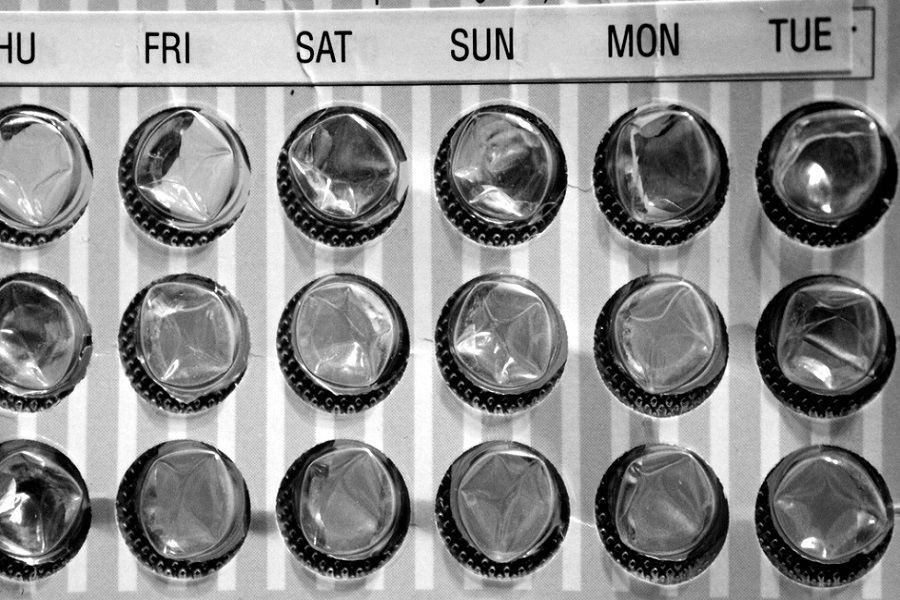LATER THIS YEAR, my home state of California will become the first to provide oral contraceptives over the counter, after months of wondering whether birth control would ever join the ranks of Benadryl, Aleve, and the like. Women will be able to purchase birth control pills directly from their local pharmacists instead of visiting their doctor for prescriptions.
Jessica Valenti, columnist for The Guardian, could not contain her excitement at the prospect in her column titled “Birth control pills should be as easy to buy as condoms.” She argued that other states should follow California’s lead. “It’s safe, effective and women are smart enough to weigh potential risks. Besides, pharmacy shelves are stocked with things far more dangerous to women than pregnancy prevention – like Aspirin, or Us magazine,” she wrote.
This is a classic statement of neoliberal feminism. We can assume Valenti’s swipe at Us Magazine is a joke; surely if women are “smart enough” to weigh the complex risk-benefit analysis of using oral contraceptives alone — regardless of direct-to-consumer advertising, corruption in the pharmaceutical industry, a for-profit healthcare system, and consistent minimization of the side effects — then they must be “smart enough” to also combat the psychological harm of flicking through the pages of a celebrity magazine. A celebrity magazine that will likely include a couple of ads for birth control pills and devices.
The insinuation that women should be able to decipher the coded language of a package insert and make an informed decision as to whether risking a blood clot is worth skipping your period all summer enrages me. So, where does that leave the young women who have suffered from or died using oral contraceptives? Whether we feel more comfortable calling them “safer than Aspirin” or not, we can’t ignore the fact that using oral contraceptives has cost some women their lives. Were these women not “smart enough” to sidestep death? Or did the doctor-cum-salesperson manage to persuade them that their fears were unfounded?
I hope that when women start turning to their pharmacists for support and information under this new law, those pharmacists are more knowledgeable about drugs than doctors and less likely to have been bought by pharmaceutical company reps. I hope those pharmacists are smart enough to know that the package insert is not enough when women hear every day that birth control pills are the reason for our economic prosperity, equality, and freedom. How exactly does a woman make a risk-benefit analysis for herself when she is told that America is better off when women take birth control (by Rolling Stone, no less)?
I do think women are smart enough to figure out when the birth control pill is causing them to experience unwanted side effects and refrain from using it any longer, regardless of whether the preponderance of research studies agrees with their conclusion or not. But then what? Then their doctor can be ready and waiting to provide a hormonal IUD or implant – methods that have risen in popularity on the basis of the medical industry’s belief that women are not smart enough to remember to take a pill every day. Women are not trusted to manage their own fertility, with methods that require a medical professional for insertion and removal actually outstripping the pill in promotional campaigns across the board.
Valenti goes on to explain that over-the-counter birth control pills would be a useful option for those women who cannot find the time to visit their doctor. We should be more troubled by the second half of that statement than she apparently is. Why can’t a woman find the time to visit her doctor? Probably because she’s overworked, underpaid, and provided with no childcare support or maternity leave — not to mention the high likelihood that she has to pay to see that doctor herself. If she can’t visit the doctor to get more birth control pills, then isn’t it just as likely that she also has no time to visit the doctor when she’s sick? Paid sick leave is nothing but a dream to some women. Maybe we need to fix the root cause here with as much enthusiasm as we tackle the symptom. Maybe American women need to read their country’s package insert and realize this place can be really bad for their health.
Of course, neoliberal feminists recentering this issue on women’s intelligence is very helpful to the pharmaceutical companies who would love to wash their hands of responsibility for the consequences that come with their drugs. This is, after all, really why the informational insert was invented — for legal protection. If we make it about our individual choice, then we can all just turn a blind eye when those choices go badly. Because for neoliberal feminists, side effects — just like poverty, cancer, and the fact you’re not a CEO yet — are all just your problem. You do you.
Dr. Jen Gunter wrote, in a blog response to a Daily Beast article for which I was interviewed that outlined the potential risks of birth control pills, that “it is devoid of science and it is the very definition of patriarchy to suggest that a woman can’t read a package insert and get her blood pressure checked at a pharmacy before picking up her pills.” Whereas Valenti claims that side effects are “unlikely,” Gunter reminds us that the insert lists hundreds of potential side effects, including death. Of course, no one has suggested that women “can’t read,” only that, living in a capitalist patriarchy as we do, reading the insert may not be enough to come to a full understanding. Especially when, apparently, America is “better off” because women take the Pill. Women are presented with a false dichotomy – the Pill or unwanted pregnancy – by the very experts they are supposed to trust most.
This week, the UK Telegraph’s #TakeBackBirthControl campaign noted that more than a quarter (27 per cent) of women surveyed didn’t know what hormonal contraception was doing to their body; more than a quarter (27 per cent) said they were “worried” and “nervous” about taking it, and one in three women (35 per cent) said they felt that women were just expected to “put up” with the side-effects of hormonal contraception. Women are expected to read the insert and take the Pill anyway. That’s patriarchy.
For more on non-hormonal birth control alternatives — or “the third way” — take a look at Holly’s current Kickstarter documentary project.

















